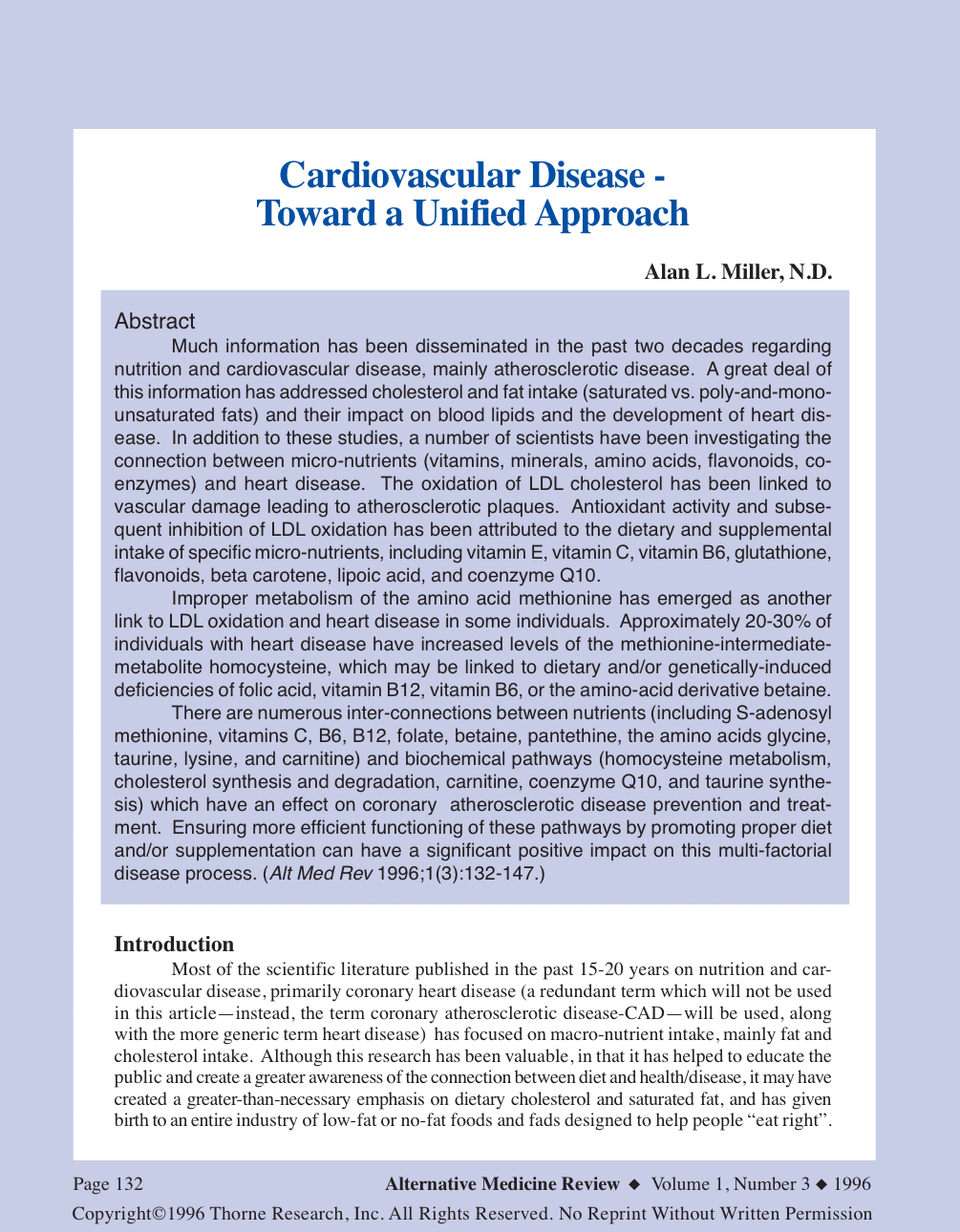Abstract
Much information has been disseminated in the past two decades regarding nutrition and cardiovascular disease, mainly atherosclerotic disease. A great deal of this information has addressed cholesterol and fat intake (saturated vs. poly-and-monounsaturated fats) and their impact on blood lipids and the development of heart disease. In addition to these studies, a number of scientists have been investigating the connection between micro-nutrients (vitamins, minerals, amino acids, flavonoids, coenzymes) and heart disease. The oxidation of LDL cholesterol has been linked to vascular damage leading to atherosclerotic plaques. Antioxidant activity and subsequent inhibition of LDL oxidation has been attributed to the dietary and supplemental intake of specific micro-nutrients, including vitamin E, vitamin C, vitamin B6, glutathione, flavonoids, beta carotene, lipoic acid, and coenzyme Q10. Improper metabolism of the amino acid methionine has emerged as another link to LDL oxidation and heart disease in some individuals. Approximately 20-30% of individuals with heart disease have increased levels of the methionine-intermediate metabolite homocysteine, which may be linked to dietary and/or genetically-induced deficiencies of folic acid, vitamin B12, vitamin B6, or the amino-acid derivative betaine. There are numerous inter-connections between nutrients (including S-adenosylmethionine, vitamins C, B6, B12, folate, betaine, pantethine, the amino acids glycine, taurine, lysine, and carnitine) and biochemical pathways (homocysteine metabolism, cholesterol synthesis and degradation, carnitine, coenzyme Q10, and taurine synthesis) which have an effect on coronary atherosclerotic disease prevention and treatment. Ensuring more efficient functioning of these pathways by promoting proper diet and/or supplementation can have a significant positive impact on this multifactorial disease process. (Alt Med Rev 1996;1(3):132-147.)

